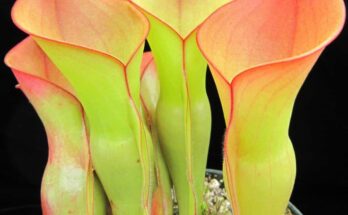I believe many people spend hours trying to eliminate crabgrass from their lawns, seeing it as nothing more than an invasive weed.
But what if I told you this resilient plant holds surprising health benefits?
Crabgrass, scientifically known as Digitaria sanguinalis, is packed with nutrients and compounds that support kidney health, reduce inflammation, and even aid digestion.
Once you discover its hidden potential, you’ll see this common plant in a whole new light!
| Scientific name | Digitaria (e.g., Digitaria sanguinalis, Digitaria ischaemum) |
| Common name | Crabgrass, Large Crabgrass, smooth crabgrass |
| Plant type | Annual grass |
| Growth habit | Spreading, low-growing, mat-forming |
| Leaf shape | Broad, flat, slightly hairy leaves |
| Root system | Fibrous, shallow roots |
| Preferred climate | Warm-season |
| Soil type | Well-drained soil |
| Water requirement | Drought-tolerant |
| Sunlight requirement | Full sun to partial shade |
Health Benefits of Crabgrass
#1. Diuretic for Kidney Health

Crabgrass promotes urine production, helping to flush out toxins and support kidney function.
Its diuretic properties are valuable for reducing water retention and maintaining electrolyte balance.
Studies have shown that natural diuretics like crabgrass can enhance kidney efficiency by reducing toxic load.
#2. Anti-Inflammatory Properties
Crabgrass contains compounds that reduce inflammation, making it effective for joint pain, muscle soreness, and respiratory conditions like asthma.
Research on plant-based anti-inflammatories supports the idea that these compounds can alleviate chronic inflammation.
#3. Relief from Skin Irritations

Crabgrass can be applied topically to treat rashes, insect bites, and minor cuts.
Its anti-inflammatory and antiseptic properties promote faster healing and reduce swelling.
#4. Digestive Aid
Crabgrass acts as a mild laxative, easing constipation and promoting healthy bowel movements.
It also helps reduce bloating and improve nutrient absorption by supporting gut health.
#5. Rich in Antioxidants
Crabgrass is rich in antioxidants, which combat oxidative stress and protect the body from free radicals.
These antioxidants can reduce the risk of chronic diseases and promote cellular repair.
#6. Fever Management
Crabgrass’s cooling properties make it an effective remedy for managing fevers.
Drinking crabgrass tea or applying a poultice can naturally reduce body temperature.
#7. Respiratory Support

Crabgrass works as an expectorant, clearing mucus and soothing the respiratory tract.
Some studies suggest that herbs with expectorant properties can support lung health by improving airflow.
#8. Immune System Boost
Packed with vitamins and minerals, crabgrass strengthens the immune system, helping the body fend off infections.
Its antioxidant-rich profile also supports overall immune health.
#9. Blood Sugar Regulation
Early research suggests that crabgrass may help regulate blood sugar levels due to its fiber content, which slows sugar absorption.
#10. Cardiovascular Health
Crabgrass supports healthy circulation and helps reduce blood pressure due to its antioxidant properties.
By reducing oxidative stress, it may lower the risk of cardiovascular diseases.
#11. Detoxification Support
The diuretic effect of crabgrass helps the body eliminate toxins, supporting both kidney and liver function.
Regular consumption promotes a healthy detox process by enhancing the body’s natural cleansing mechanisms.
How to Use Crabgrass for Health Benefits
Internal Use

Crabgrass tea is a simple way to enjoy its benefits. You just boil the leaves and stems, and drink the tea once or twice a day.
Adding crabgrass to smoothies or salads also provides a nutritional boost without altering flavor.
External Use
Crush fresh crabgrass leaves and apply them directly to bites, cuts, or irritated skin for quick relief.
You can also infuse oils with dried crabgrass for a soothing skin treatment.




